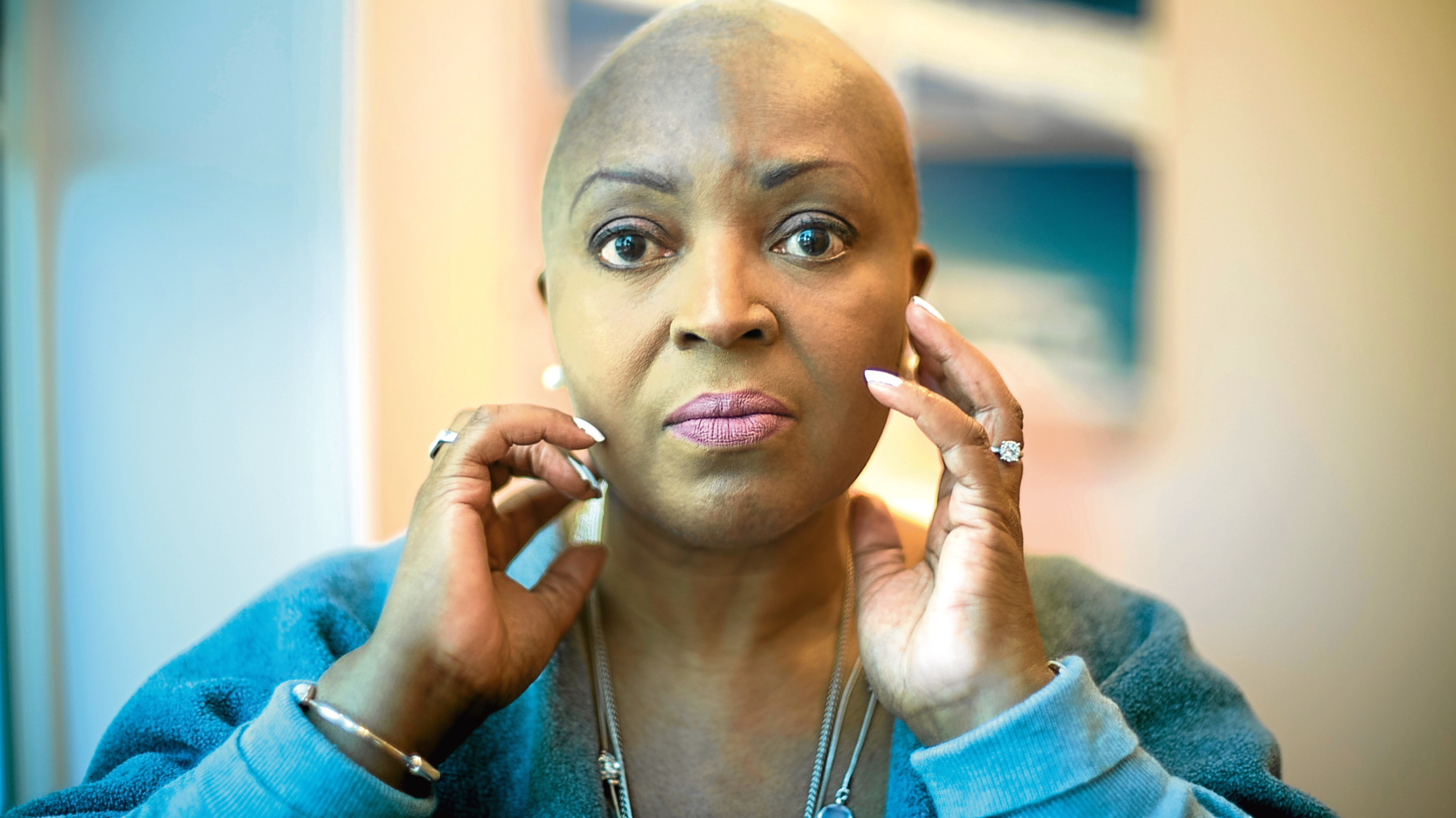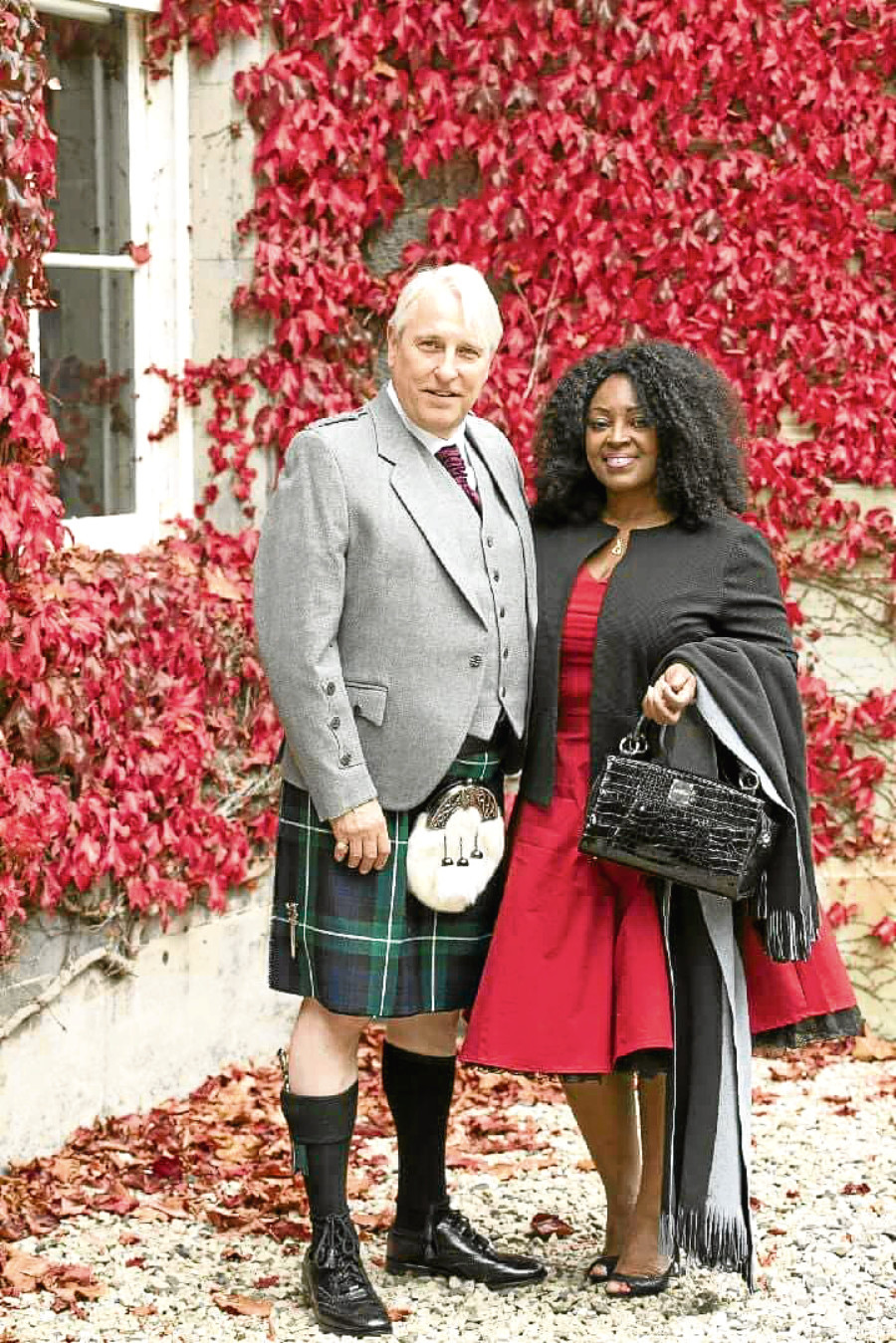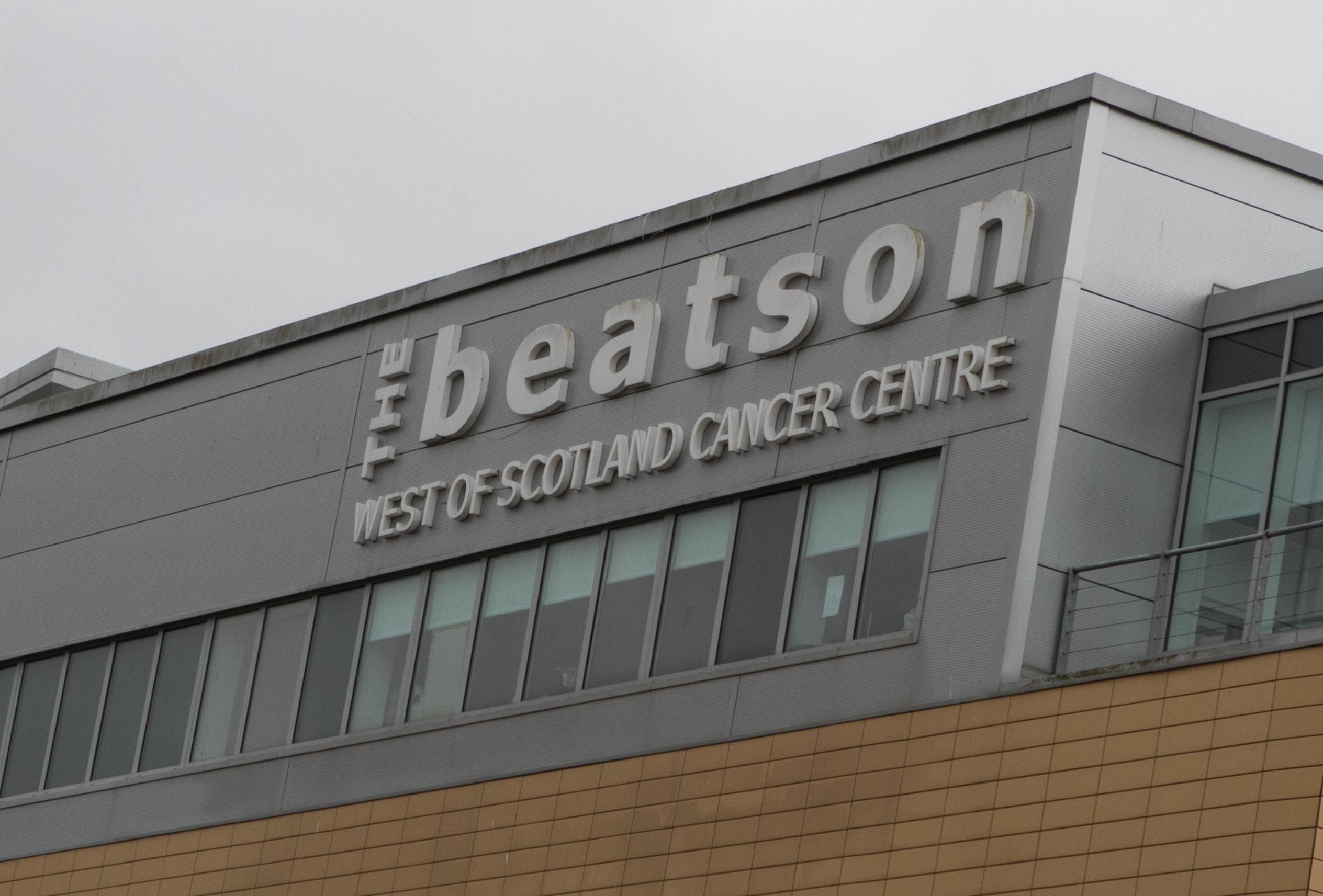
IT is a place people hope they will never have to visit but once inside they realise how special it is.
Caring for 8,000 new patients every year and providing more than 20,000 courses of chemotherapy, The Beatson is the second-biggest cancer centre in the UK and covers a population of three million.
Ten years after the £105 million centre opened in Glasgow, a BBC Scotland series, The Cancer Hospital, will tell the stories of patients, hear from the dedicated medical staff and reveal the continual drive to discover effective new treatments.
Marie Ferguson, one of the patients to feature, describes the facility as a “very cheerful place.”
She said: “The doctors have a huge workload but it doesn’t matter to them.
“They still treat you as an individual and have that special smile for you, no matter the time of day.
“They allow you to take as much time as you need.
“People talk about nurses being overworked and underpaid and I agree – I would pay them three times what they are currently getting because they are fantastic.
“You do feel lucky to be treated there.”
The three-part series looks at a different form of cancer in each episode – breast, lung and prostate – and Marie is one of six women with breast cancer to share her story.
Today, one in eight women in the UK will be diagnosed with the disease, but 80% will survive 10 years or more. That’s in comparison to 25 years ago when it was only 60%.
That rise is thanks to both early diagnosis and the continuing advances in treatment.
The majority of women who attend The Beatson for breast cancer treatment are given the all-clear, but Marie, from Bearsden, needed to return. The mum of two was diagnosed with secondary breast cancer last year, the disease having spread to her lungs.
She volunteered for the documentary shortly after going through an operation to remove two litres of fluid from her lungs and wasn’t “in the best shape”.
But the 60-year-old decided to participate because she wanted to show what having breast cancer was really like.
“The main reason was to make people more aware,” she revealed.
“Somebody always knows someone with cancer, but they don’t really know how it affects you, they don’t know how you feel, mentally or physically.
“Even a lot of my friends don’t know what I’m going through. Maybe they don’t see the good things and I wanted to show it’s not all doom and gloom.
“I forgot the cameras were there. As far as I was concerned I was just going to my consultation and the crew actually ended up becoming my friends.”
Marie’s primary diagnosis came in March 2011. She had gone for a routine mammogram, which came back clear, but a short time later she discovered a lump.
It was stage three HER2 positive breast cancer, an aggressive form of the disease.
A lumpectomy, then six months of chemotherapy and five weeks of daily radiotherapy followed. She was given 12 months of Herceptin treatment to suppress the proteins in her body and was also on Tamoxifen for five years.
The hospital’s support network is so strong that Marie missed it when her treatment was over.
“For a few months I felt like the rug had been pulled from under my feet. I was so used to going to the hospital,” she said.
“What happens if I sneeze or feel a pain? I got worried because I didn’t have the support system any more, but after a few years you stop thinking like that.”
Marie carried on with her life and met her fiancé, Ian.
But following a dose of flu last April she struggled to rid herself of a cough and was feeling tired.
“At first I didn’t think it was anything to do with cancer, but it turned out the cells had migrated to the lining of my lungs and the fluid couldn’t escape.
“I was rushed to hospital, unable to breathe. By that stage I knew what the news was going to be.”
Clinical nurse specialist Lynne Stirling, who treated Marie, said: “When they come back and it is secondary breast cancer it’s devastating.
“You feel sorry for them because that’s what their fear was originally.”
Following a successful operation, Marie began a gruelling cycle of 18 weekly chemotherapy sessions.
Her last bout was two weeks ago and she will now attend The Beatson for Herceptin injections every three weeks for the rest of her life.
“I’m upbeat about it,” she said. “I feel I’ll be doing this for some time.
“I regard it as a chronic condition rather than an illness.
“I know it’s not curable, but I liken it to something like diabetes, where you have to take treatment for the rest of your life.
“As long as you adapt, you know you are going to have a long and healthy life.”
Marie’s next chapter begins in May, when she will marry Ian in Atlanta, Georgia.
“Ian is from America and I have lots of family there, so we decided that’s where we wanted it to be.
“He will be wearing a kilt and my daughter Fiona and son Don will fly over to be with us.
She added: “I’m enjoying each day and I intend to keep on doing so.”
The Cancer Hospital, BBC One Scotland, Wednesday, 9pm.

Enjoy the convenience of having The Sunday Post delivered as a digital ePaper straight to your smartphone, tablet or computer.
Subscribe for only £5.49 a month and enjoy all the benefits of the printed paper as a digital replica.
Subscribe
 © Chris Austin / DC Thomson
© Chris Austin / DC Thomson